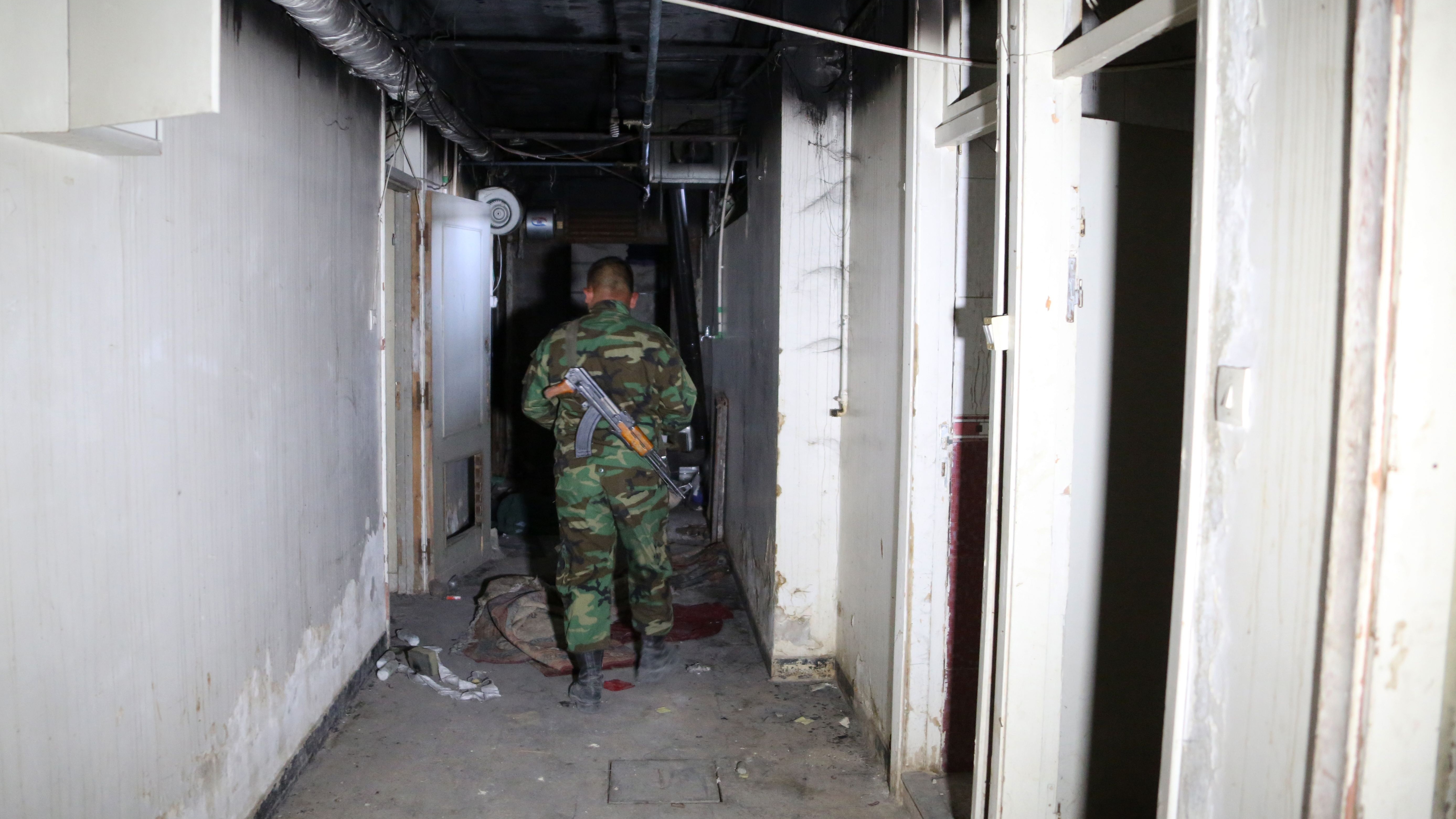Syria regime accused of brutal torture methods
Report reveals harrowing details of killing and mistreatment of prisoners

A free daily email with the biggest news stories of the day – and the best features from TheWeek.com
You are now subscribed
Your newsletter sign-up was successful
The Syrian regime inflicts at least 72 types of torture on prisoners in its detention centres, a report has claimed.
The Syrian Network for Human Rights (SNHR) estimates that the methods have resulted in the deaths of 185 people this year, and more than 14,000 over the course of the country’s civil war.
“No month in all the years since 2011 has passed without us documenting dozens of deaths due to torture in the Syrian regime’s centres, which is still continuing to the current date,” its report said.
The Week
Escape your echo chamber. Get the facts behind the news, plus analysis from multiple perspectives.

Sign up for The Week's Free Newsletters
From our morning news briefing to a weekly Good News Newsletter, get the best of The Week delivered directly to your inbox.
From our morning news briefing to a weekly Good News Newsletter, get the best of The Week delivered directly to your inbox.
The forms of torture documented in the report are shocking: crucifixion, eye-gouging, rape, scalding with boiling water and slicing off body parts. Some prisoners were handed to junior doctors for surgical training, says The Guardian.
Others - severely physically and mentally ill from mistreatment - were put in cells with healthier captives. Some survivors told the SNHR that sharing cells with hallucinating and hysterically crying prisoners was “worse than the physical torture inflicted on them by the Syrian regime”.
The SNHR discovered the extensive torture methods by interviewing survivors and witnesses. It also examined more than 6,000 pictures of murdered Syrians exposed by a former regime photographer known as “Caesar”, who smuggled the photos out of the country on flash drives hidden in his shoes.
The images and interviews gave only a partial insight into the true number of torture methods used by the regime, which the SNHR said was - like the death toll - “likely to be far higher”.
A free daily email with the biggest news stories of the day – and the best features from TheWeek.com
–––––––––––––––––––––––––––––––For a round-up of the most important stories from around the world - and a concise, refreshing and balanced take on the week’s news agenda - try The Week magazine. Get your first six issues free–––––––––––––––––––––––––––––––
Witness accounts in the report go into horrific detail of how prisoners have been treated. One account claims that prison officers used a grenade to smash the teeth of a detained 15-year-old boy. They then “sprayed insecticide all over [the boy’s] body, set him on fire then wrapped his body with gauze, and from time to time they peeled the gauze [and] lifted his skin with a blade”.
Electricity was used as a torture method, with prison officers using an electric baton on the detainee’s stomach or genitals, reports the Daily Mail.
The Syrian government has always denied allegations that it systematically tortures prisoners.
-
 Why are election experts taking Trump’s midterm threats seriously?
Why are election experts taking Trump’s midterm threats seriously?IN THE SPOTLIGHT As the president muses about polling place deployments and a centralized electoral system aimed at one-party control, lawmakers are taking this administration at its word
-
 ‘Restaurateurs have become millionaires’
‘Restaurateurs have become millionaires’Instant Opinion Opinion, comment and editorials of the day
-
 Earth is rapidly approaching a ‘hothouse’ trajectory of warming
Earth is rapidly approaching a ‘hothouse’ trajectory of warmingThe explainer It may become impossible to fix
-
 Will increasing tensions with Iran boil over into war?
Will increasing tensions with Iran boil over into war?Today’s Big Question President Donald Trump has recently been threatening the country
-
 Epstein files topple law CEO, roil UK government
Epstein files topple law CEO, roil UK governmentSpeed Read Peter Mandelson, Britain’s former ambassador to the US, is caught up in the scandal
-
 Iran and US prepare to meet after skirmishes
Iran and US prepare to meet after skirmishesSpeed Read The incident comes amid heightened tensions in the Middle East
-
 Which way will Trump go on Iran?
Which way will Trump go on Iran?Today’s Big Question Diplomatic talks set to be held in Turkey on Friday, but failure to reach an agreement could have ‘terrible’ global ramifications
-
 Syria’s Kurds: abandoned by their US ally
Syria’s Kurds: abandoned by their US allyTalking Point Ahmed al-Sharaa’s lightning offensive against Syrian Kurdistan belies his promise to respect the country’s ethnic minorities
-
 Israel retrieves final hostage’s body from Gaza
Israel retrieves final hostage’s body from GazaSpeed Read The 24-year-old police officer was killed during the initial Hamas attack
-
 China’s Xi targets top general in growing purge
China’s Xi targets top general in growing purgeSpeed Read Zhang Youxia is being investigated over ‘grave violations’ of the law
-
 Syria’s Islamic State problem
Syria’s Islamic State problemIn The Spotlight Fragile security in prison camps leads to escape of IS fighters